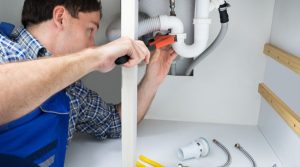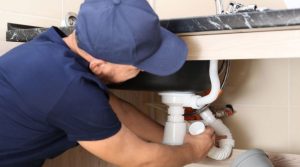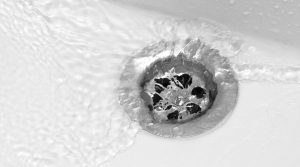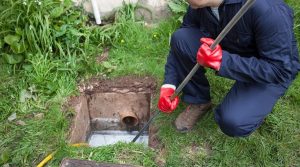Prepare your plumbing for seasonal changes with proactive maintenance tips that prevent costly issues. Protect your home, save money, and ensure your systems work seamlessly as the weather shifts.
Key Takeaways
- Perform essential plumbing checks and maintenance before seasonal transitions to avoid common issues like frozen pipes and boiler breakdowns.
- Regular boiler servicing, radiator bleeding, and pipe inspections ensure optimal efficiency and safety.
- Simple steps, like testing your carbon monoxide detector and locating your stop taps, can prevent emergencies.
Preparing Your Plumbing for Seasonal Changes
Why Seasonal Maintenance Matters
Seasonal shifts often come with fluctuating temperatures and unpredictable weather, which can strain your plumbing and heating systems. A proactive approach can minimize wear and tear, reduce the cost of urgent repairs and make sure your home remains safe and functional.
Common Issues in Seasonal Transitions
As summer gives way to autumn or winter, plumbing systems are susceptible to issues such as frozen pipes, boiler malfunctions, and radiator inefficiencies. Addressing these problems early can prevent costly breakdowns during colder months.
Essential Plumbing Maintenance Steps
1. Test Your Heating System Early
Please turn on your heating system briefly during warmer months to ensure it operates properly. Regularly running the boiler keeps its components in working order and allows you to detect potential issues before they become emergencies.
2. Inspect and Bleed Radiators
Radiators may develop cold spots due to trapped air or sludge buildup.
- Steps to Bleed Radiators:
- Turn off your heating system.
- The bleed valve may be opened with a radiator key slowly.
- Release air until water flows smoothly, then close the valve.
- Consider a power flush if cold spots persist. This process clears sludge and ensures maximum efficiency.
3. Schedule Boiler Maintenance
Regular boiler servicing by a certified technician ensures your heating system operates efficiently and safely. Servicing during warmer months is typically more affordable This lowers the possibility of malfunctions during periods of high usage.
4. Check Outdoor Plumbing and Pipes
Freezing temperatures can damage outdoor pipes and your boiler’s condensate line.
- Inspect all joints for weak spots or signs of wear.
- Use lagging (pipe insulation) to protect exposed pipes from freezing.
5. Locate and Test Stop Taps
Your stop tap controls your home’s water supply in case of leaks or emergencies. Ensure it is:
- Easily accessible.
- Functional and easy to turn. For added convenience, consider installing a remote-controlled stop tap, such as a Sure Stop, for quick access in emergencies.
6. Isolate External Taps
Install a separate stop tap for your external taps to prevent frozen pipes from affecting your entire water supply. This allows for targeted water isolation during repairs.
7. Test Carbon Monoxide Detectors
Gas appliances, including boilers, can produce carbon monoxide if not properly maintained.
- Test your carbon monoxide detector regularly.
- Replace its batteries as needed.
- If you don’t already have a detector, install one immediately to safeguard your family.
Additional Tips for Winter-Ready Plumbing
- Drain Outdoor Hoses: Disconnect and store hoses to keep the inside water from freezing, which might lead to damage.
- Seal Drafty Areas: Ensure any spaces around pipes entering the home are well-insulated.
- Monitor Water Pressure: Sudden drops may indicate leaks or blockages that require professional attention.
FAQ: Seasonal Plumbing Maintenance
Q: How often should I bleed my radiators?
A: Bleed your radiators at least once a year, preferably before winter. If you notice uneven heating, it’s time to recheck them.
Q: What is a power flush, and do I need one?
A: A power flush removes sludge and debris from your heating system, improving efficiency. If your radiators have persistent cold spots, a power flush may be necessary.
Q: When should I service my boiler?
A: Annual servicing is ideal, preferably during the summer when demand for technicians is lower, and prices may be more competitive.
Q: How can I prevent frozen pipes?
A: Insulate exposed pipes, keep your heating on at a low level during extreme cold, and regularly check for leaks or weak spots.
Q: What should I do if I suspect a gas leak?
A: Turn off your gas supply immediately, open windows for ventilation, and call a Gas Safe registered engineer or emergency services. Do not use electrical devices or flames.
Q: Can I test my stop tap myself?
A: Yes. Locate the stop tap, turn it off, and ensure the water stops flowing. If it’s challenging to operate, consider replacing it or installing a more accessible alternative.
Q: Why is a carbon monoxide detector important?
A: The colorless, odorless gas known as carbon monoxide can be fatal. A detector alerts you to leaks, providing critical protection.
Benefits of Proactive Plumbing Maintenance
Investing time in seasonal plumbing maintenance offers several advantages:
- Cost Savings: Avoid costly repairs by addressing minor issues early.
- Efficiency: Improve the performance of heating systems, reducing energy bills.
- Safety: Protect your home from water damage, gas leaks, and carbon monoxide exposure.
- Convenience: Minimize disruptions by resolving potential problems before peak usage.
Conclusion
Seasonal changes present unique challenges for home plumbing, but a few proactive steps can save you time, money, and stress. From testing heating systems to insulating pipes, preparing now ensures a safe, efficient, and comfortable home year-round.
Don’t wait for problems to arise—act today to safeguard your plumbing and heating systems for the months ahead!
Expert Plumbing and Sewer Services in Jersey City, NJ
Got plumbing issues? Whether it’s clogged drains, sewer main backups, or waste pipe replacements, we’ve got you covered! Our skilled plumbers specialize in fast, reliable solutions to keep your home running smoothly. Call us now for immediate plumbing and drain service!w, without a doubt.







